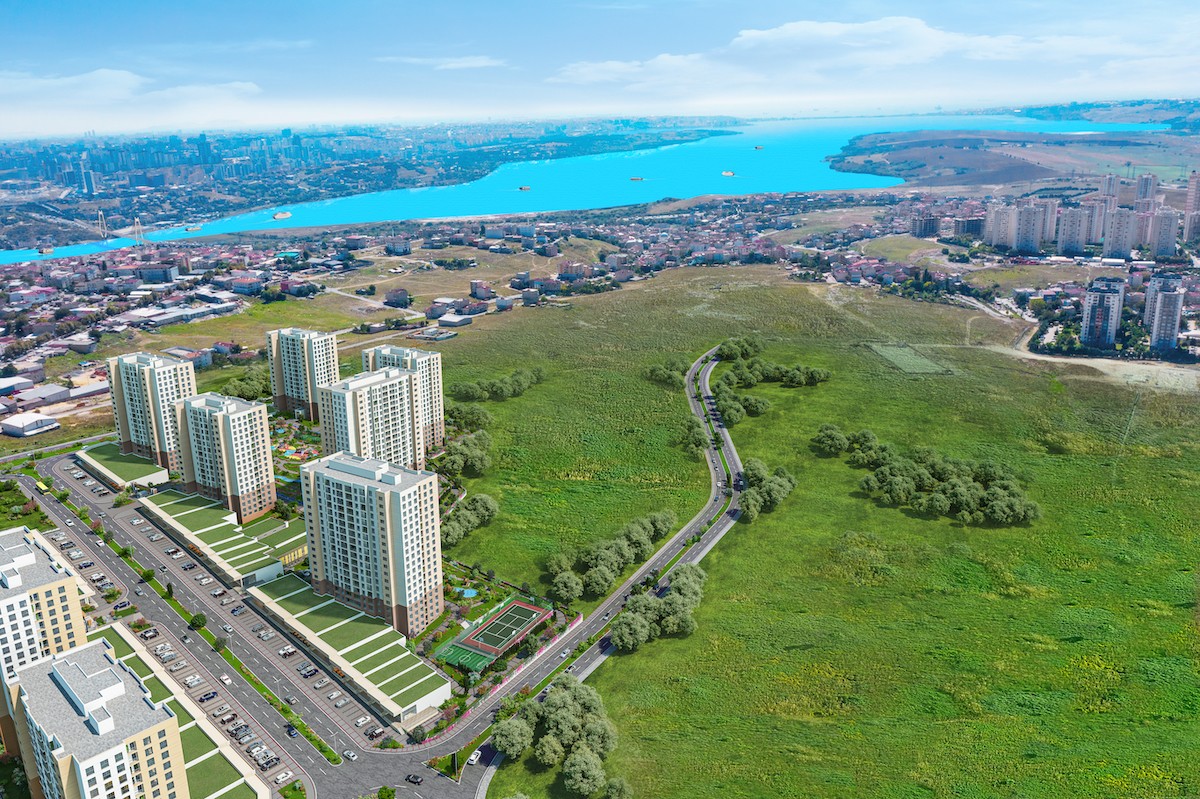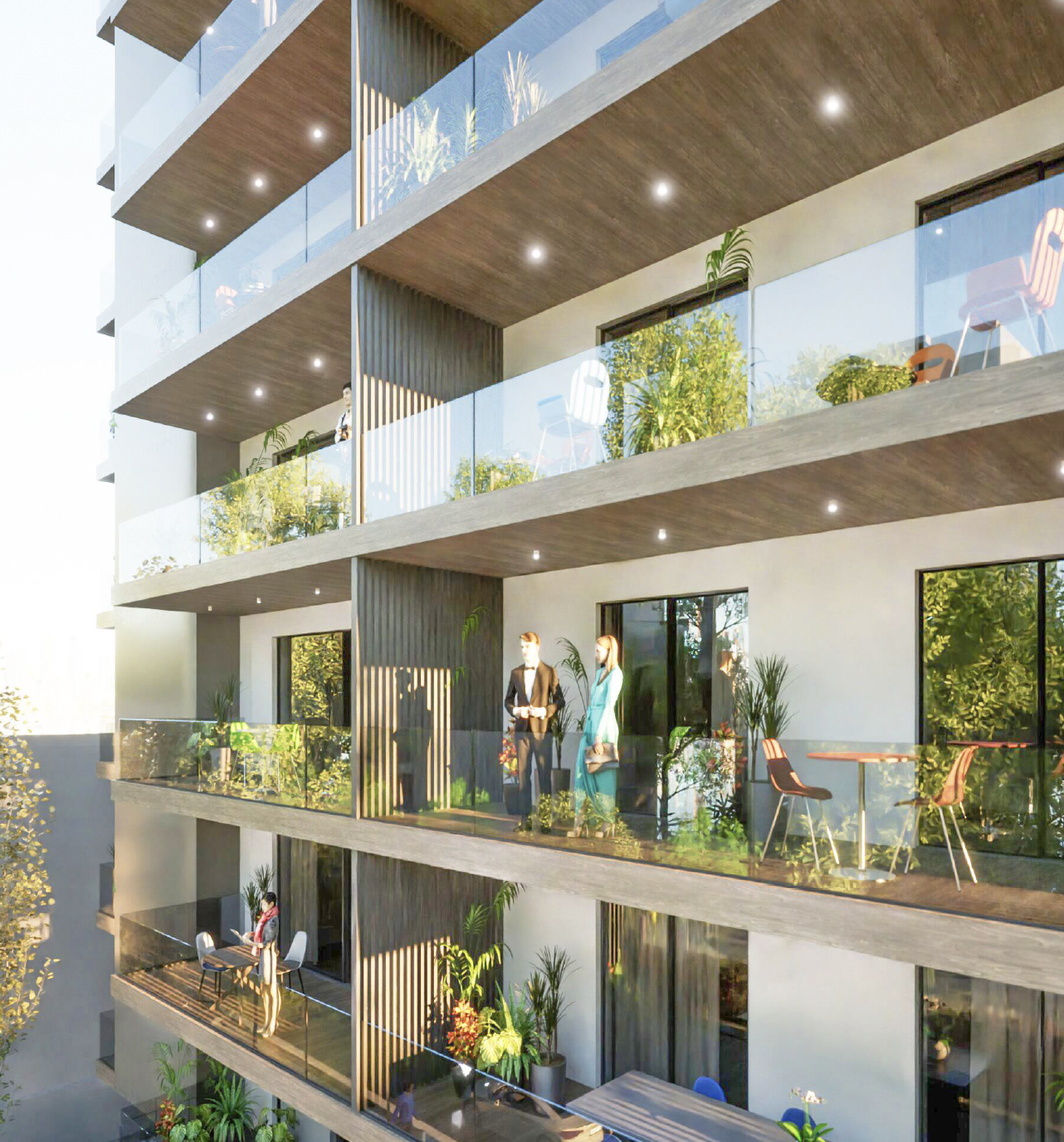Tips for a Smooth Rental Experience in Istanbul
Understanding the Istanbul Rental Market
The Istanbul rental market can be a complex and competitive environment for both tenants and landlords. With a city as large and diverse as Istanbul, it’s important to have a clear understanding of the rental market before embarking on your search for a new home. By understanding the market trends, regulations, and popular neighborhoods, you can make informed decisions that will ultimately lead to a successful rental experience.
One of the first things to consider when trying to understand the Istanbul rental market is the current demand for rental properties. Istanbul is a bustling city with a growing population, which means that the demand for housing is high. This high demand can lead to increased rental prices and a competitive rental market. It’s important to be aware of these factors when determining your budget for renting and researching neighborhoods.
Another key aspect of understanding the Istanbul rental market is familiarizing yourself with the popular neighborhoods and locations. Istanbul is divided into several districts, each with its own unique characteristics and attractions. Some popular neighborhoods for rentals include Beyoglu, Kadikoy, and Besiktas. These neighborhoods offer a range of housing options, from luxurious apartments to more affordable options. Researching these neighborhoods will give you a better idea of where you want to focus your search.
When navigating the Istanbul rental market, it’s also crucial to find a reliable real estate agent who can help guide you through the process. A good real estate agent will have extensive knowledge of the market and can assist you in finding properties that meet your criteria. They can also negotiate rental terms and conditions on your behalf, ensuring that you get a fair rental agreement. By finding a trustworthy agent, you can save time and effort in your search for the perfect rental property.
Finally, understanding the rental contracts and legalities in Istanbul is vital to ensuring a smooth rental experience. Rental contracts in Turkey are typically for a minimum of one year, and it’s important to carefully review the terms and conditions before signing. It’s also recommended to have a bilingual lawyer review the contract to ensure that your rights are protected. Understanding the legalities of renting in Istanbul will give you peace of mind and protect you from any potential issues down the line.
In summary, understanding the Istanbul rental market is key to a successful rental experience. By familiarizing yourself with the demand for rental properties, researching neighborhoods, finding a reliable real estate agent, and understanding the rental contracts and legalities, you can navigate the rental market with confidence. Whether you’re a first-time renter or a seasoned tenant, taking the time to understand the rental market will ultimately lead to finding the perfect home in Istanbul.
Determining Your Budget for Renting
When it comes to renting a property, one of the most crucial factors to consider is determining your budget. Setting a budget for renting not only helps you narrow down your options but also ensures that you find a property that aligns with your financial capabilities.
There are several factors to consider when determining your budget for renting. The first step is to evaluate your monthly income and expenses. Calculate how much you can comfortably allocate towards rent without compromising on other essential expenses like food, bills, and transportation. It is always recommended to keep your rental expenses within 30% of your monthly income.
Next, consider the additional costs associated with renting a property. These may include security deposits, maintenance fees, utilities, and parking charges. Make sure to account for these expenses when determining your budget to avoid any financial surprises.
- Research: Take the time to research the rental market in your desired location. This will give you an idea of the average rental prices in the area and help you understand if your budget is realistic.
- Priority: Assess your needs and priorities. Determine what features and amenities are essential for you in a rental property. Keep in mind that properties with more amenities tend to be higher in cost.
- Flexibility: Be open to adjusting your budget if necessary. There might be instances when you find a property that ticks all your boxes but exceeds your budget slightly. If the additional cost is manageable, you can consider compromising in other areas to accommodate the higher rent.
Once you have determined your budget, it is essential to stick to it and avoid overspending. It can be tempting to go for a more luxurious property or a larger space, but it is important to stay within your means. Prioritize your financial stability and ensure that you will be able to comfortably afford the rent throughout your lease term.
| Expenses | Amount |
|---|---|
| Rent | $1200 |
| Utilities | $150 |
| Security Deposit | $2000 |
| Maintenance Fees | $100 |
| Total | $2450 |
Determining your budget for renting requires careful consideration of your financial situation and priorities. Researching the rental market, assessing your needs, and being flexible can help you arrive at a realistic budget. Remember to stick to your budget and prioritize your financial stability when making your final decision. With a well-defined budget in place, you can confidently begin your search for the perfect rental property.
Researching Neighborhoods and Locations
When it comes to renting a property, one of the most important factors to consider is the neighborhood and location. Whether you’re moving to a new city or staying in the same area, it’s crucial to research and understand the neighborhoods before making any decisions. By doing so, you can ensure that the area meets your needs and preferences, creating a pleasant and comfortable living experience.
First and foremost, start by identifying your requirements and priorities. Determine what matters most to you in a neighborhood and make a list of the amenities, facilities, and services that are essential for your lifestyle. It could be proximity to schools, hospitals, parks, shopping centers, or even public transportation. These factors will serve as your guide in narrowing down your options and focusing your research on the areas that meet your criteria.
Once you’ve established your preferences, it’s time to delve into the research. Start by gathering information about the neighborhoods you’re interested in. Look for online resources such as real estate websites, forums, and social media groups where you can find valuable insights and opinions from current residents. Reading reviews and experiences shared by others can give you an idea of what it’s like to live in a particular area.
- Crime Rate: Safety is a top priority, so be sure to check the crime rate in the neighborhoods you’re considering. Look for local crime statistics or consult with local authorities for accurate information.
- Amenities: Determine if the area has the amenities and services that you require on a daily basis. This could include grocery stores, entertainment venues, gyms, restaurants, or any other facilities that are important to you.
- Schools: If you have children or plan to start a family in the future, researching the quality of schools in the area is crucial. Look for schools with a good reputation, favorable student-teacher ratios, and extracurricular activities.
After gathering information through research and online resources, it’s advisable to physically visit the neighborhoods you’re considering. Exploring the area in person will give you a better feel for the surroundings and help you gauge if it aligns with your preferences. Take note of the cleanliness, maintenance, and overall atmosphere of the neighborhood. Pay attention to factors like noise levels, traffic congestion, and accessibility to main roads and public transportation.
| Neighborhood | Crime Rate | Amenities | Schools |
|---|---|---|---|
| Neighborhood A | Low | Supermarkets, Restaurants, Parks | Excellent |
| Neighborhood B | Medium | Shopping Malls, Gyms, Cinemas | Good |
| Neighborhood C | High | Markets, Cafes, Libraries | Average |
Lastly, don’t hesitate to reach out to locals or residents in the area to gather their first-hand experiences and insights. Engaging in conversations with them can provide invaluable information that may not be easily found elsewhere. Ask about the community spirit, local events, and any other aspects that are important to you.
In conclusion, researching neighborhoods and locations is a crucial step in the rental process. By understanding your requirements, conducting thorough research, physically visiting the areas, and gathering insights from locals, you can make an informed decision and choose a neighborhood that best suits your needs and lifestyle. Remember, a little extra effort in researching now can save you from potential future regrets.
Finding a Reliable Real Estate Agent
When it comes to finding a reliable real estate agent, there are several key factors to consider. A real estate agent plays a crucial role in helping you navigate the complex world of property rentals. They can provide valuable insights, guide you through the process, and ensure you find the right property that meets your needs and budget. But with so many agents out there, how do you choose the right one? In this blog post, we will discuss some important tips and strategies to help you find a reliable real estate agent who will make your rental experience smooth and stress-free.
Firstly, one of the most important factors to consider when finding a reliable real estate agent is their experience and expertise in the local rental market. It is vital to choose an agent who has a thorough understanding of the Istanbul rental market, including the current trends, prices, and availability of properties. An experienced agent will have a vast network of connections and knowledge of the different neighborhoods and locations in Istanbul, which can be immensely helpful in finding the perfect rental property for you.
Secondly, it is essential to research and read reviews about potential real estate agents before making a decision. Look for testimonials or reviews from previous clients to get an idea of their professionalism, reliability, and level of customer satisfaction. Positive reviews from satisfied clients are a good indication that the agent is trustworthy and capable of providing excellent service. Additionally, consider asking for recommendations from friends, colleagues, or family members who have recently rented properties in Istanbul. Their firsthand experience can give you valuable insights and recommendations.
Furthermore, make sure to interview multiple real estate agents before making a final decision. Ask them about their experience, their knowledge of the rental market, and their approach to finding properties. During the interview, pay attention to how well the agent listens to your needs and requirements. A reliable real estate agent will take the time to understand your preferences, budget, and specific requirements in order to offer tailored solutions. Don’t hesitate to ask questions about their fees, contracts, and any other concerns you may have.
In conclusion, finding a reliable real estate agent in Istanbul is crucial for a successful rental experience. By considering their experience, researching their reputation, and interviewing multiple agents, you can find someone who will guide you through the rental process and help you find the perfect property. Taking the time to find a reliable agent will save you from unnecessary stress, potential scams, and ensure a seamless rental journey.
- Real estate agent’s experience and expertise in the local rental market
- Researching and reading reviews
- Interviewing multiple real estate agents
| Key Factors in Finding a Reliable Real Estate Agent |
|---|
| Experience and expertise in the local rental market |
| Researching and reading reviews |
| Interviewing multiple real estate agents |
Inspecting the Property Before Signing
When it comes to renting a property, inspecting the property before signing the lease is a crucial step that should not be overlooked. This is your opportunity to thoroughly assess the condition of the property and ensure that everything is in proper working order. By taking the time to inspect the property, you can identify any potential issues or damages and address them with the landlord before signing the lease agreement.
During the inspection, it is important to pay attention to both the interior and exterior of the property. Start by checking the overall cleanliness and condition of the walls, floors, and ceilings. Look for any signs of water damage, such as dampness or discoloration. Inspect the windows, doors, and locks to ensure they are functioning properly and offer adequate security.
Next, move on to the kitchen and bathroom areas. Check the faucets, sinks, and toilets to ensure they are in good working condition. Look for any signs of leaks or water damage. Test the appliances, such as the stove, refrigerator, and dishwasher, to ensure they are functioning properly. Make sure there is sufficient storage space for your needs.
It is also important to inspect the electrical and plumbing systems of the property. Test the light switches, outlets, and circuit breakers to ensure they are working properly. Check for any exposed wiring or faulty electrical outlets. In terms of plumbing, check for any leaks or drips, and test the water pressure and temperature in the showers and sinks.
In addition to the interior, don’t forget to inspect the exterior of the property as well. Look for any signs of damage or deterioration on the roof, walls, and foundation. Check the condition of the landscaping and any outdoor amenities, such as a patio or balcony. Assess the parking situation and make sure there are sufficient parking spaces available for you and your guests.
- Inspect the interior and exterior of the property
- Check for water damage, leaks, and faulty appliances
- Assess the electrical and plumbing systems
- Pay attention to the cleanliness and condition of the property
- Check for signs of damage or deterioration on the roof and walls
| Things to Inspect | Action Steps |
|---|---|
| Interior and Exterior | Thoroughly walk through the property, inspecting each room and outdoor area. |
| Water Damage and Leaks | Look for any signs of water damage, leaks, or drips in the kitchen, bathroom, and other areas. |
| Appliances | Test all appliances to ensure they are in good working condition. |
| Electrical and Plumbing Systems | Check the outlets, light switches, and plumbing fixtures for any issues or faults. |
| Cleanliness and Condition | Assess the overall cleanliness and condition of the property, including walls, floors, and ceilings. |
| Roof and Walls | Look for any signs of damage or deterioration on the roof and walls of the property. |
By conducting a thorough inspection of the property before signing the lease agreement, you can ensure that you are renting a property in good condition. If you discover any issues during the inspection, be sure to discuss them with the landlord and determine how they will be resolved before signing the lease. Remember, taking the time to inspect the property now can save you from potential headaches and disputes in the future.
Negotiating Rental Terms and Conditions
When it comes to renting a property, negotiating the terms and conditions can play a crucial role in securing a favorable deal. Understanding the rental market and having a clear idea of your requirements will empower you during the negotiation process. It is important to be well-informed and confident in order to achieve the best outcome. In this blog post, we will discuss some key tips and strategies to help you negotiate rental terms and conditions like a pro.
Do Your Research
Before entering into any negotiation, it is essential to conduct thorough research. This includes understanding the average rental prices in the area, the current market trends, and any additional charges or fees that may be associated with the property. By having this information at hand, you will be better equipped to negotiate effectively and make informed decisions.
Identify Your Priorities
Prior to negotiation, determine your priorities and what aspects of the rental agreement are non-negotiable for you. This could include the duration of the lease, pet policies, or any specific maintenance requests. By identifying your priorities in advance, you can focus your negotiation efforts on these key areas and increase your chances of reaching a mutually beneficial agreement.
Be Prepared to Compromise
Negotiation is a give-and-take process, so it is important to be prepared to compromise. While it is important to stand firm on your priorities, be open to making concessions on other aspects of the rental agreement. This flexibility will demonstrate your willingness to work towards a solution and can ultimately lead to a successful negotiation.
Know Your Strengths
Understanding your strengths and leveraging them during negotiation can significantly improve your chances of success. For example, if you have excellent references or a stable income, highlight these aspects to the landlord or real estate agent. Emphasizing your positive qualities can put you in a stronger position and give you an advantage during the negotiation process.
Get Everything in Writing
Once you have successfully negotiated the rental terms and conditions, it is imperative to get everything in writing. This includes the agreed-upon rental price, the duration of the lease, any additional terms or conditions, and any agreed-upon repairs or modifications. Having a written agreement will protect both parties and prevent any misunderstandings in the future.
Conclusion
Negotiating rental terms and conditions requires preparation, knowledge, and a clear understanding of your priorities. By conducting thorough research, identifying your non-negotiables, being prepared to compromise, leveraging your strengths, and getting everything in writing, you can increase your chances of securing a favorable rental agreement. Remember to approach negotiations with confidence and be open to finding solutions that work for all parties involved.
Understanding Rental Contracts and Legalities
Understanding Rental Contracts and Legalities
When it comes to renting a property, it is essential to have a clear understanding of rental contracts and the legalities involved. These contracts serve as a binding agreement between the tenant and the landlord, outlining the rights and responsibilities of both parties. By familiarizing yourself with the terms and provisions of the contract, you can protect yourself from any potential disputes or misunderstandings that may arise during your tenancy.
One crucial aspect to pay attention to is the duration of the lease agreement. Rental contracts typically specify the length of time you are obligated to rent the property, whether it is on a month-to-month basis or for a fixed term, such as six months or one year. It is crucial to thoroughly read and understand this aspect before signing the contract, as it dictates how long you will be legally bound to the property.
Furthermore, rental contracts often outline the financial aspects of the tenancy, such as rent amount, payment schedule, and security deposit requirements. It is important to carefully review these sections and ensure they align with your budget and financial capabilities. Pay close attention to any penalties or fees mentioned in the contract, as well as the consequences of late or missed rent payments.
- Pay attention to the duration of the lease agreement
- Thoroughly review the financial aspects of the tenancy
- Familiarize yourself with the maintenance and repair responsibilities
Another crucial aspect of rental contracts is understanding the maintenance and repair responsibilities. The contract should clearly state who is responsible for carrying out repairs, whether it is the landlord or the tenant. It is important to be aware of these obligations to avoid any disputes or misunderstandings in the future. Additionally, ensure that the contract includes provisions for handling necessary repairs in a timely manner to maintain the habitability of the property.
In addition to the contractual provisions, it is vital to understand the legalities surrounding rental agreements in your specific location. Familiarize yourself with local laws and regulations that protect both landlords and tenants. This includes understanding eviction procedures, tenant rights, and the process for resolving disputes.
| Key Considerations for Understanding Rental Contracts and Legalities: |
|---|
| Thoroughly review the terms and provisions of the contract |
| Pay attention to the duration and financial aspects of the tenancy |
| Understand the maintenance and repair responsibilities |
| Familiarize yourself with local laws and regulations |
In conclusion, understanding rental contracts and legalities is crucial for a smooth and trouble-free renting experience. Take the time to thoroughly review the terms and provisions of the contract, paying special attention to the duration, financial aspects, and maintenance responsibilities. Additionally, familiarize yourself with local laws and regulations to ensure you are aware of your rights as a tenant. By doing so, you can enter into a rental agreement with confidence and peace of mind.
Frequently Asked Questions
Question 1: How do I determine my budget for renting in Istanbul?
To determine your budget for renting in Istanbul, you should first assess your income and monthly expenses. Consider how much you can comfortably afford to spend on rent without straining your finances. It’s also important to factor in additional costs such as utilities, maintenance fees, and transportation expenses. Additionally, research the average rental prices in different neighborhoods of Istanbul to get an idea of the current market rates.
Question 2: What factors should I consider when researching neighborhoods and locations in Istanbul?
When researching neighborhoods and locations in Istanbul, there are several factors to consider. Think about your daily commute to work or school and choose a neighborhood that offers convenient transportation options. Safety and security should also be a priority, so look for neighborhoods with low crime rates. Take into account the availability of amenities such as grocery stores, parks, restaurants, and healthcare facilities. Additionally, consider the overall ambiance and the type of community you want to live in.
Question 3: How can I find a reliable real estate agent in Istanbul?
To find a reliable real estate agent in Istanbul, you can start by asking for recommendations from friends, family, or colleagues who have recently rented or purchased properties in the city. You can also search online for reputable real estate agencies and read reviews from previous clients. When contacting agents, ask about their experience, knowledge of the local rental market, and any professional certifications they hold. It’s important to choose an agent who is responsive, transparent, and has a good track record.
Question 4: Why is property inspection important before signing a rental agreement?
Property inspection is crucial before signing a rental agreement to ensure that the property is in satisfactory condition and any existing damages or issues are documented. By thoroughly inspecting the property, you can identify any potential maintenance or repair requirements. This inspection can help protect you from being held responsible for damages that were pre-existing. It is also an opportunity to clarify any concerns or questions you may have about the property.
Question 5: How can I negotiate rental terms and conditions in Istanbul?
To negotiate rental terms and conditions in Istanbul, you can start by researching the average rental rates in the desired neighborhood. If you find the asking price to be higher than the market average, you can use that information as leverage during negotiations. Highlight any desirable factors that set you apart as a tenant, such as good credit history, stable income, or a long-term lease commitment. Be prepared to compromise and discuss terms such as the duration of the lease, payment schedule, or any specific requests you may have.
Question 6: What should I consider when understanding rental contracts and legalities in Istanbul?
When understanding rental contracts and legalities in Istanbul, it is important to carefully read and comprehend all terms and conditions before signing. Consider seeking legal advice, especially if you are unfamiliar with local laws and regulations. Pay attention to details such as the duration of the lease, payment terms, deposit requirements, and any penalties or obligations stated in the contract. Ensure that all verbal agreements or promises made by the landlord are included in the written contract to avoid any misunderstandings or disputes in the future.
Question 7: What documents and information should I prepare before renting a property in Istanbul?
Before renting a property in Istanbul, it is important to prepare the necessary documents and information. This may include a valid identification document, proof of income or employment, and references from previous landlords or employers. Landlords may also request a security deposit, so be prepared to provide the required amount. It is recommended to have these documents ready in advance to expedite the rental process and secure the desired property.
EDITOR
Categories
Recent Articles

Real Estate Sales Hit a Peak in September: Is Now the Best Time to Invest in Turkish Property?
October 17, 2024

IMF Forecasts Turkey’s Inflation Decline: What It Means for Real Estate Investors
October 12, 2024

September 2024: Foreign Interest in Turkish Real Estate Reaches New Heights
October 10, 2024

Why Golden Visa?
October 8, 2024

Golden Visa Showdown: Greece, Lithuania, Spain & Portugal – Which Program is Right for You?
October 4, 2024

A Complete Guide to the Lithuania Golden Visa Program Process
October 2, 2024

2024 Green Card Applications: Don’t Miss Your Chance to Achieve the American Dream!
October 2, 2024

The Lithuania Golden Visa: A Pathway to European Residency and Investment
September 26, 2024

Millionaire Migration Surges in 2024: Wealthy Individuals Flock to the UAE, U.S., and Singapore
September 15, 2024

A Comparative Look at European Golden Visa Programs: Why Lithuania Stands Out
September 13, 2024


